Coronavirus: UK patient is University of York student
- Published
Matt Raw, who was flown out of Wuhan, shows the BBC his living quarters at Arrowe Park Hospital
One of the two people to test positive for the new coronavirus in the UK is a student at the University of York.
The pair - who are related - were confirmed as having coronavirus after being taken ill at a hotel in York.
The university said the student was not on campus or in student accommodation before or after exposure to the virus.
Public Health England (PHE) said it was making "good progress" in tracing people who have come into close contact with the two Chinese nationals.
Vice-chancellor Prof Charlie Jeffery said the immediate concern was for the student and their family, along with the health and wellbeing of staff, students and visitors.
He said the risk of the infection being passed on to other people on campus was low, adding the university is open and continuing to operate as normal.
Prof Jeffery added: "I want to reiterate to students, staff, parents and visitors that we're working with our partners across the city to ensure that York and the university remain a safe and welcoming place to live, work and visit."
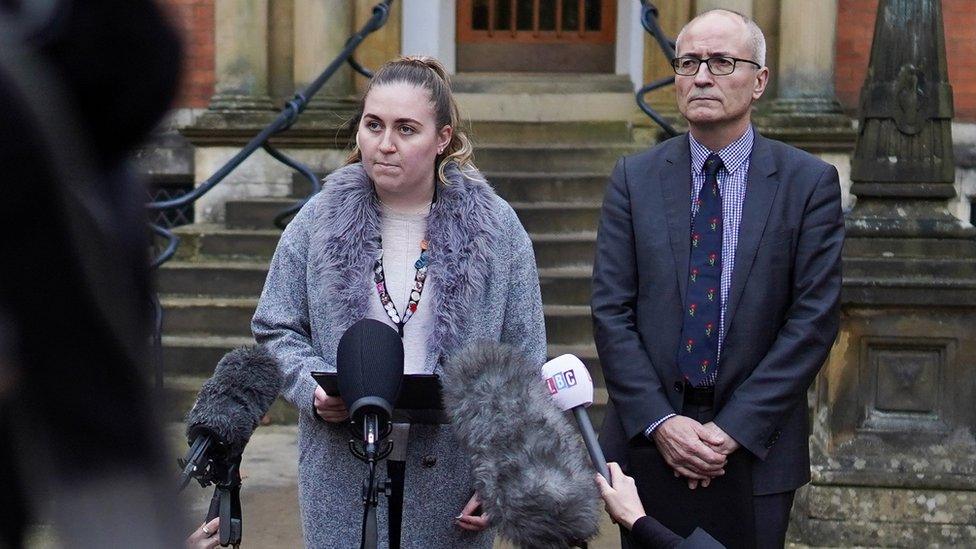
The university's Samara Jones and Prof Charlie Jeffery made a statement on Saturday
University of York Students' Union president Samara Jones said many students were likely to be worried by the news but would support one another.
She encouraged students with any questions to keep an eye on the university website for any developments, external and key information.
The University has set up a dedicated helpline on 01904 809571.
Meanwhile, the University of Derby confirmed "a very small number" of students who came back from Wuhan before travel restrictions were put in place were self-isolating for 14 days.
A spokeswoman said all the students were fit and well.
The Department of Health said no further positive cases had been confirmed in the UK by 14:00 GMT on Saturday, with 201 people testing negative from 203 tests.
PHE said those who have been in close contact - defined as being within two metres for 15 minutes or more - with the York pair would receive health advice.
Professor Sharon Peacock, director of its National Infection Service said staff do not currently have "any idea" how many people that might be.
Translators are on hand to make sure information from the patients about places they have visited and people they have spent time with is as accurate as possible, according to PHE.
Those contacts thought to be at high risk are given daily health checks and asked to self-isolate.
Anyone who does fall ill will be offered a test to see whether they too have contracted the virus - and, if they have, the process of tracing their close contacts would start again, PHE added.
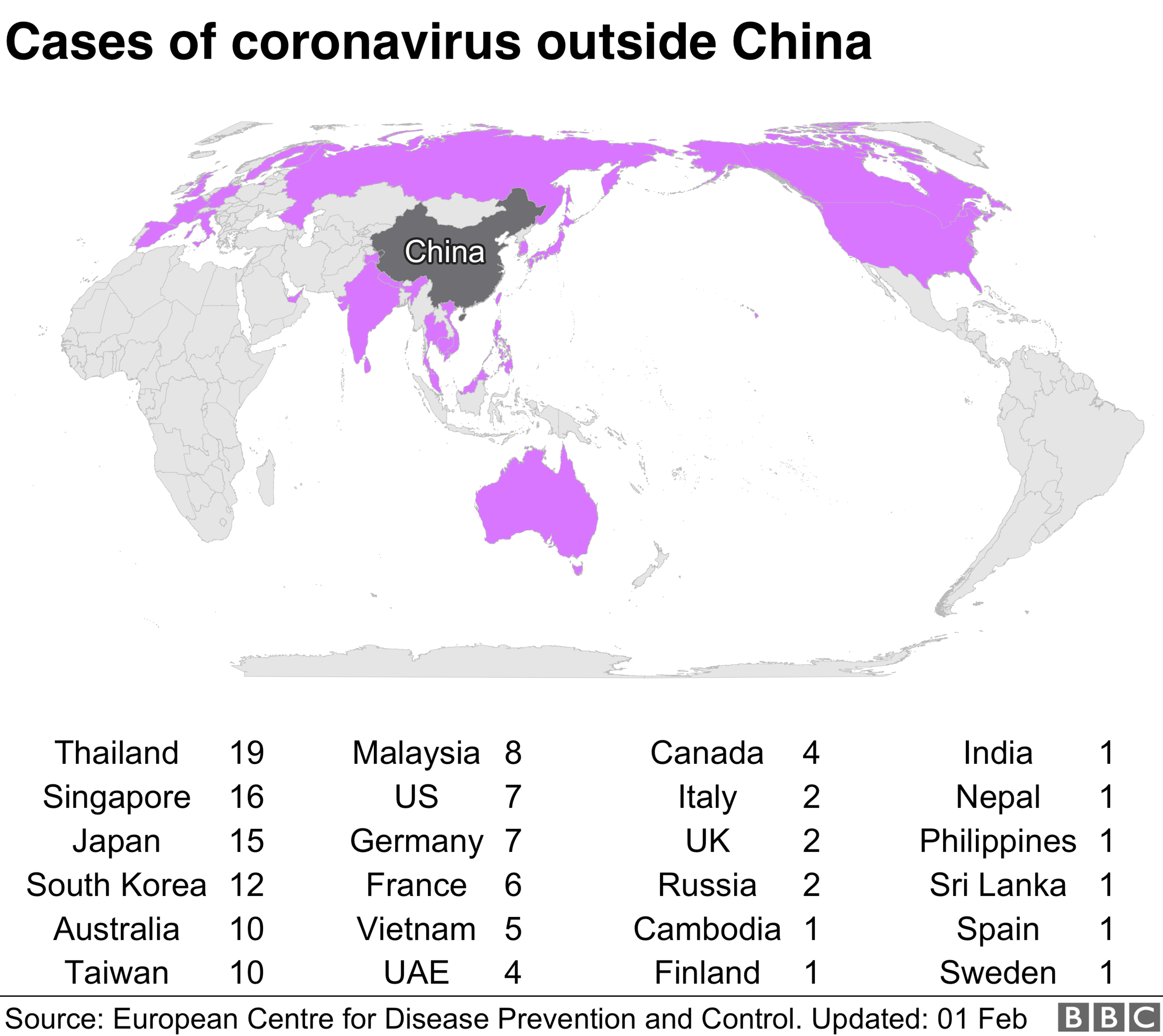

The death toll from the new virus, which is officially called 2019-nCov, now stands at 304.
All the deaths occurred within China and the majority - 294 - were in Hubei province, where the virus originated. Hubei recorded 45 more deaths on Saturday.
It comes as the 83 Britons evacuated from Wuhan, in Hubei province, on Friday began two weeks in quarantine.
The two York patients, whose diagnosis was announced on Friday morning, were staying at the Staycity apartment-hotel when medics were called.
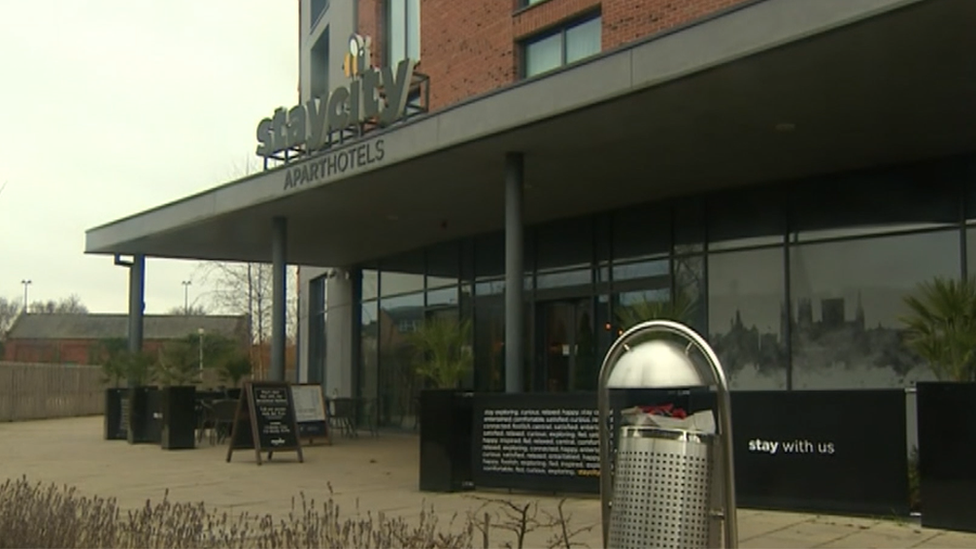
The two people with coronavirus stayed at the Staycity apartment-hotel in York
Staycity said that the hotel will stay open and the apartment used by the two patients disinfected.
They are now being treated at a specialist infectious diseases unit at the Royal Victoria Infirmary in Newcastle and residents of the city are being reassured they are not at risk.
In China, cases of the virus have reached nearly 12,000 - with more than 100 cases reported in 22 other countries.
On Friday, the Foreign Office said it would withdraw some non-essential embassy staff and their families from mainland China.
The ambassador and staff who needed to continue "critical work" would remain, while British nationals in China would continue to have access to 24/7 consular assistance.
Some 83 UK nationals and 27 others were flown into the UK on a chartered evacuation flight from the Chinese city of Wuhan, where the outbreak of coronavirus began.
Before boarding the flight, passengers had to sign papers agreeing to an enforced period of isolation.
The UK nationals were taken by coach to Arrowe Park Hospital on the Wirral on Friday evening.
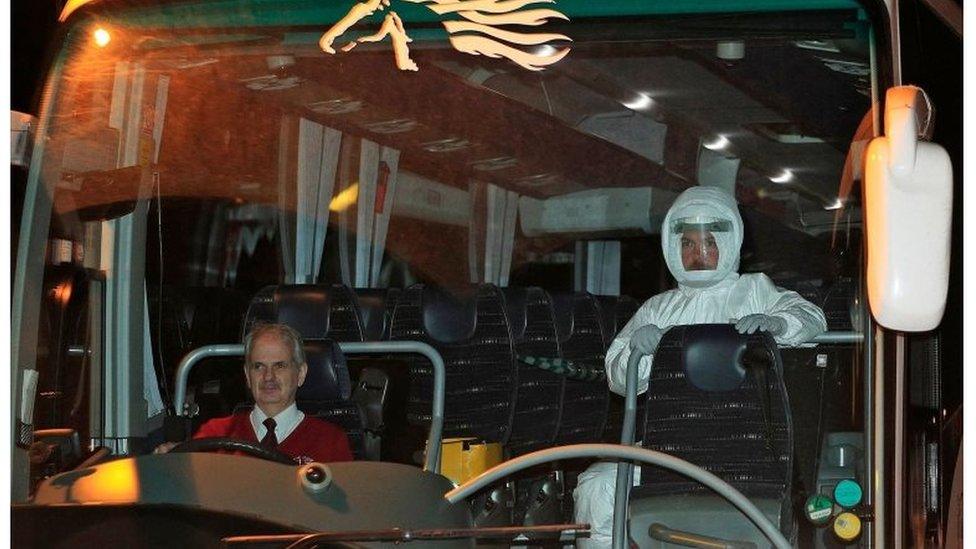
Five coaches transported those evacuated from Wuhan to the north west of England on Friday
They will spend 14 days in quarantine - but not solitary confinement - in two apartment blocks normally used to house nurses, who have been moved to local hotels.
The UK evacuees are being put up in fully-furnished rooms, including kitchens, and provided with food and laundry facilities. Families are being kept together, with toys and baby equipment available.
They will have access to a team of medical staff who will closely monitor their condition and any developing symptoms.
Matt Raw, one of those in quarantine, told BBC News that he and his family "were extremely glad to be here".
He said he, his wife and his mother were staying in a four-bedroom apartment, along with another woman and her daughter. He stressed they were feeling fine and had "an army" of people looking after them.
Mr Raw said there was an area outside where they were able to get some fresh air, adding they were "allowed contact with anybody within the facility, as long as we're wearing face masks".
'Military-grade cleansing process'
Horseman Coaches, which transported the evacuees to the hospital, said health officials advised its drivers did not need to wear protective clothing for the journey.
Five drivers will enter a two-week period of isolation at home as a precaution and the vehicles used will be subject to a "military-grade cleansing process", the company added.
Meanwhile, a British man staying in Wuhan to be with his family has expressed concern the UK government will "forget" him.
On Thursday, the UK's four chief medical officers raised the risk level of the illness from low to moderate and the World Health Organisation (WHO) declared an international public health emergency.
Prof Chris Whitty: "There is a high chance that people will get better and end up with a relatively minor disease"
Virus experts said they were not surprised to see cases in the UK but there was no reason to panic.
Meanwhile, the United States declared a public health emergency on Friday night, with President Donald Trump signing an order which will temporarily bar entry for most foreign nationals who have travelled in China within the last 14 days.
On Saturday, Australia said it too would refuse entry to all non-citizens arriving from China.
On Friday, it emerged that the number of new coronavirus cases worldwide had overtaken that of the 2003 Sars epidemic.
However, the mortality rate is currently low, at 2% - less than Sars, at 10% and Ebola, at 70%, WHO's chief medical officer says.
The BBC's online health editor talks us through what we know about the virus
The death rate could yet go up if more of those in hospital die - or down, if it's discovered there are many other people with mild symptoms.

Learn more about the new virus

Your questions: You asked, we answered
The story explained: How worried should we be?
Wuhan profiled: The city now in lockdown
In detail: Follow all our coverage here
Epidemic v pandemic: What's the difference?

Do you have information to share? Please get in touch by emailing haveyoursay@bbc.co.uk, external.
Please include a contact number if you are willing to speak to a BBC journalist. You can also contact us in the following ways:
WhatsApp: +44 7756 165803, external
Send pictures/video to yourpics@bbc.co.uk, external
Tweet: @BBC_HaveYourSay, external
Please read our terms & conditions and privacy policy
- Published1 February 2020
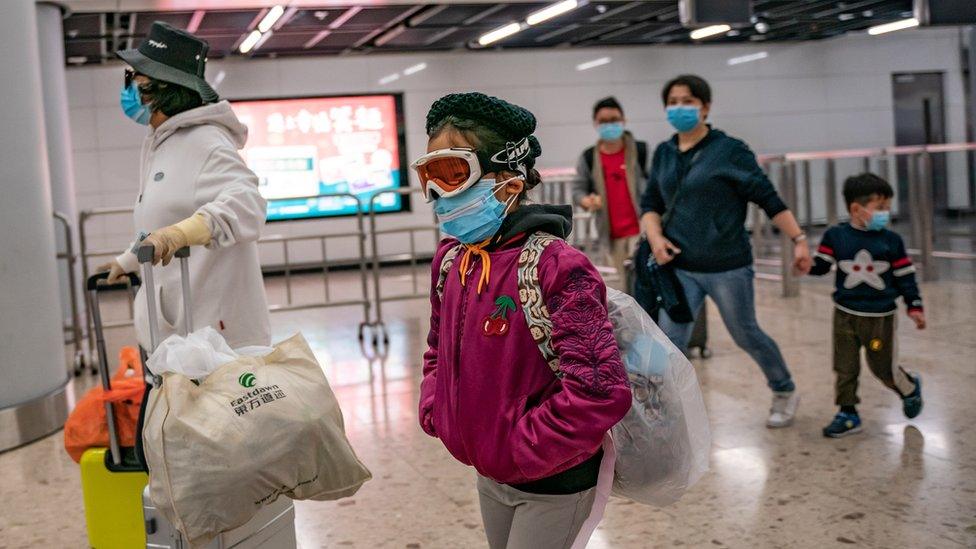
- Published31 January 2020
